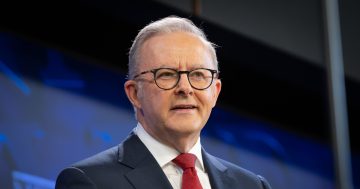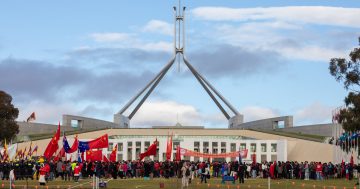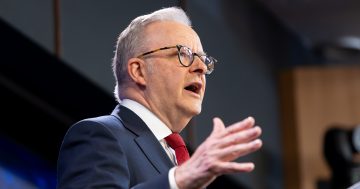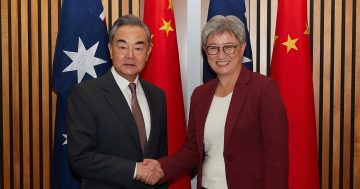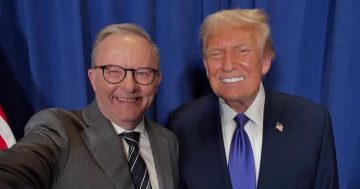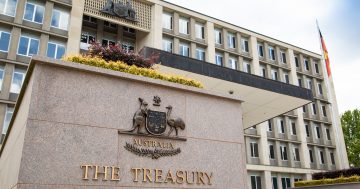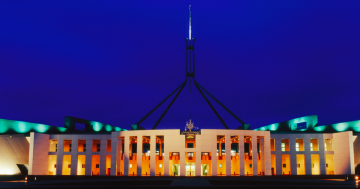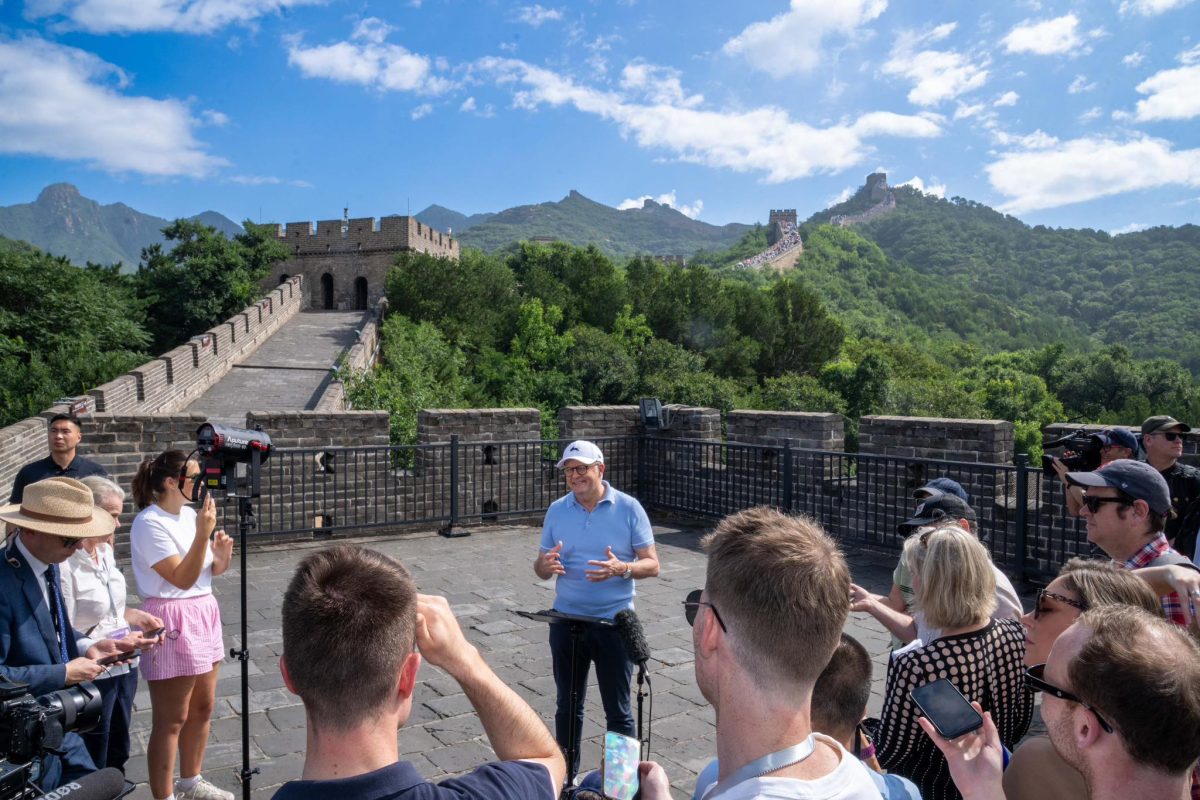
Prime Minister Anthony Albanese talks to journalists while at the Great Wall of China. Photo: PM’s Facebook.
Anthony Albanese is more than halfway through his official visit to China and he is already hailing the trip a success.
The evidence backs the Prime Minister up, with the relationship between Australia and China at the best and friendliest it has been in the past few years, following the trade war of the Morrison Government era.
Mr Albanese has been warmly welcomed with a state dinner and separate meetings with Chinese President Xi Jinping and Premier Li Qiang.
On Wednesday (16 July), the PM visited the Great Wall of China and spoke to the media there, in a symbolic nod to former Labor Prime Minister Gough Whitlam.
“I have the sense of history following in the footsteps of the Labor Prime Minister Gough Whitlam, who was the first Prime Minister to visit here in 1973,” Mr Albanese said.
“It followed the correct decision that he made as leader of the Labor Party in 1971, … when that was a controversial decision, to recognise the People’s Republic of China.
“There is no question that Gough Whitlam made the right decision in 1971 and that Australia has benefited from that.
“It certainly is understood here in China that that was an early decision and was a decision that took courage.”
In his meeting with Mr Li, the Prime Minister was urged to further cement Australia’s trade relationship with China, with comments that have been interpreted as a dig at US President Donald Trump’s tariffs crusade.
The Chinese Premier referred to “growing instability and uncertainty in the global economy” when making the comments.
“The development of all countries is faced with new challenges and, given such circumstances, China and Australia as important trade partners should strengthen dialogue and cooperation,” Mr Li said.
“The significance of us doing so is becoming more notable.”
In a joint statement issued following the meeting, Mr Albanese and Mr Li committed their respective countries to “continue to grow the bilateral relationship, enhance exchanges and cooperation in areas of shared interest, uphold their respective national interests, and navigate their differences wisely”.
Mr Albanese also had a private meeting with President Xi and said the pair talked across a number of issues while not agreeing on everything.
“I’ve said consistently that we’ll cooperate where we can, disagree where we must, but engage in our national interest,” the Prime Minister said.
“It is very clear that it is in our national interest for us to have a positive relationship with China.
“Where there are differences, we’ll talk about them, but not be defined by them. And that is critical going forward …
“It’s important that we build stability and security in our world. And part of that has to be positive engagement. That’s what I’m doing here. And I’m very honoured to be here today.”
Following the meetings, Chinese officials distributed a readout saying the Prime Minister had reaffirmed Australia’s commitment to the One China policy and its opposition to Taiwan independence.
Mr Albanese said he hadn’t seen the readout. When pressed further he didn’t deny the quote.
“I agreed that Australia has had a longstanding bipartisan position that has supported the One China policy,” he said.
“That is our position, and that’s been the position of governments for a long period of time in Australia and is still the bipartisan position in Australia …
“What we do is continue to support a One China policy. We support the status quo, by definition we don’t support any unilateral action on Taiwan.
“That’s been our position for a long period of time. Nothing’s different there.”
Returning to the issue of trade, the PM said he would look at every case on its merits.
“We’ll deal with issues on a case-by-case basis based upon our national interest, as it’s perceived at the time,” he said.
“But as a general principle of course, one of the things that I emphasise – I say the same thing in Beijing as I say in Bankstown, which is that the Australian Government supports free and fair trade.
“It’s in the interest of the world to have free and fair trade, and we’ll continue to engage that way.”
Original Article published by Chris Johnson on Region Canberra.



